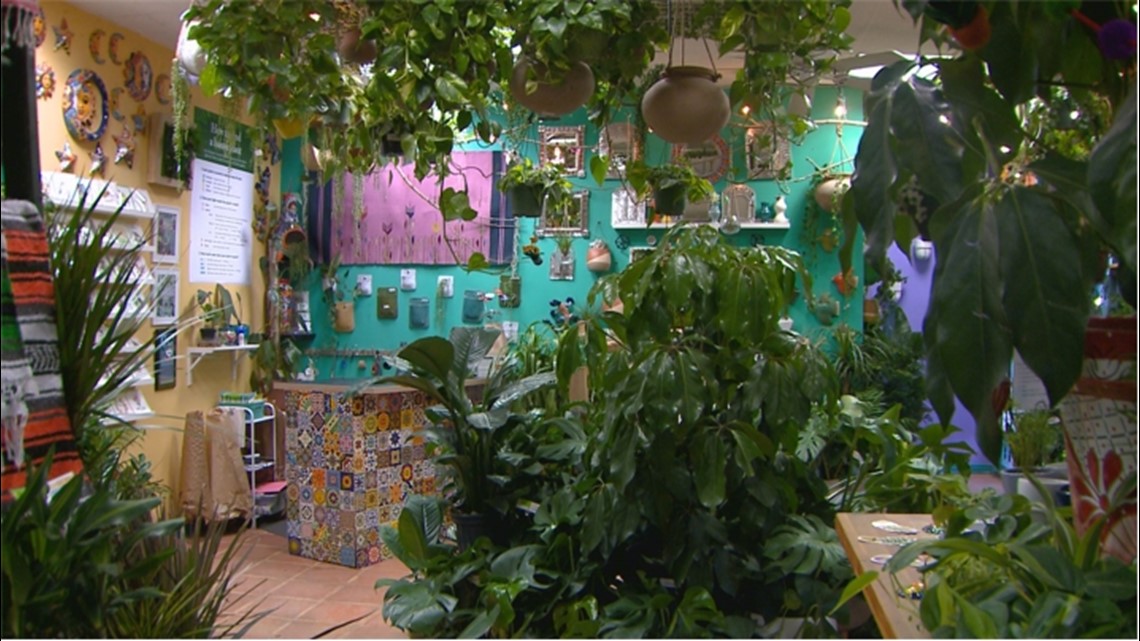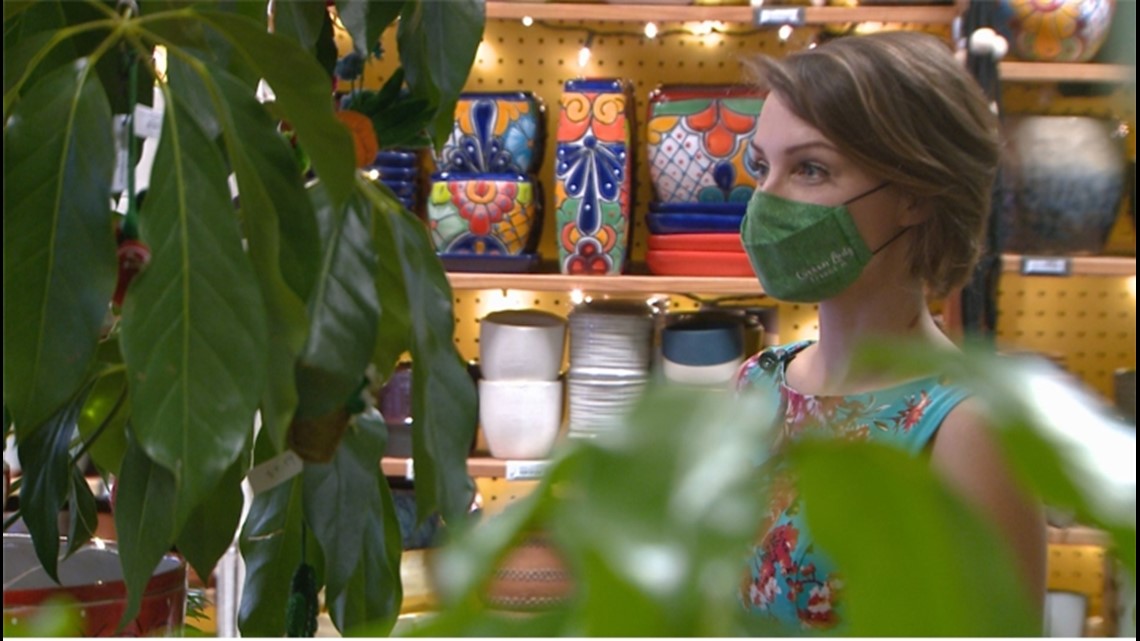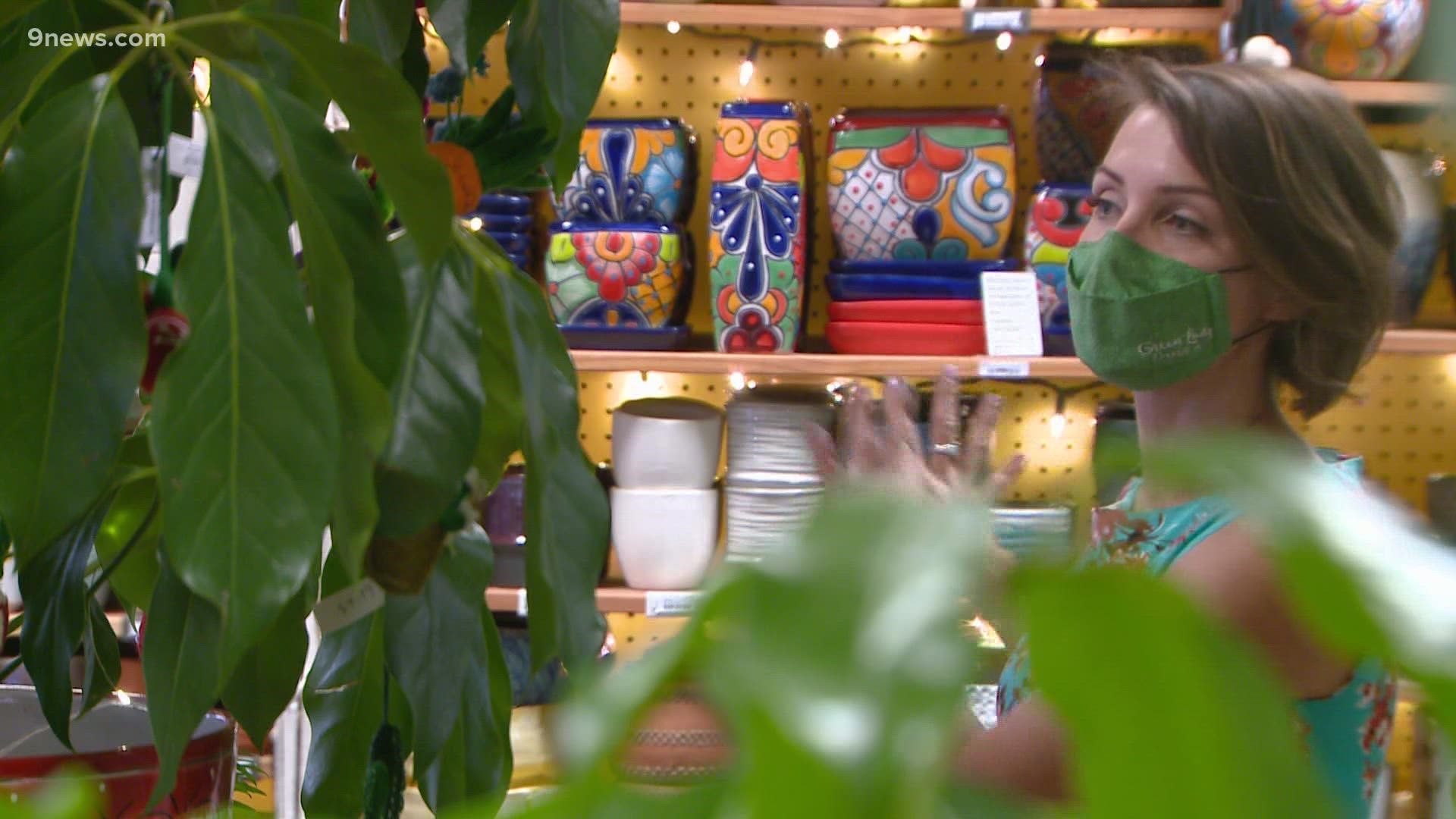DENVER — Small businesses who managed to stay open during the pandemic have been enduring and trying to navigate a problem impacting what seems to be most industries: supply chain issues.
According to the Bureau of Labor Statistics, import air freight prices rose 27.6% from October 2020 to October 2021.
A recent analysis from the United Nations found that if the current surge in container freight rates were to continue on its same course, global import price levels could increase by 11% and consumer prices levels by 1.5% between now and 2023.
On the ground, some business owners say their freight rates have gone up significantly, which has caused a price increase on consumers.
Despite this, several Denver business owners hold optimism moving forward that they'll continue to adapt as needed.


Pottery poses a hurdle
If you step inside the small, yet colorful space of Green Lady Gardens off of Santa Fe Drive in Denver, you'll be welcomed with Latin music playing on the speakers, which matches the theme of the plant pots they sell.
"I love bright colors. I love celebrations. And I really wanted to make my store something where when you look at it, you knew who owned the shop," said owner Jessica Schutz.
The store that has made regulars over the years is known in part for its colorful, painted pots that fill the shelves.
“We used to order pottery as needed so every few weeks we would get a pallet of pottery," she said. “Now I’m placing huge orders and I’m not getting it.”
A delay in shipping, along with an increase in paying for that shipping, is a common trend among small business owners, Schutz says.
“So at the beginning of the year for instance I placed an order on January 2nd - normally I would get all of those items within a month. I got an email that said a whole bunch of those items, I’m not even getting until next Spring”, she said, adding that as a result, her orders are much larger now to prepare for future delays on other orders. “And so for all of our suppliers, instead of ordering you know a thousand dollars of pottery every few weeks, I’m doing 5 to 6k.”
When it comes to shipping, she explains that she used to have a few places where she would order a certain minimum and would get free freight, or at least a 10% freight rate.
"And now these places are coming back and they’re doing 20% freight with an 8% surcharge and it’s just making our costs like go up," she said. “It’s hard because you can only sell products for so much so it really bites into our profit margins.”
Overall, she hopes that customers continue to come out support local businesses, and acknowledges that customers appear to be aware of increased prices.
“Going out, supporting local, you know spending those extra few bucks to keep that person employed and to keep their other employees and keep the dream alive is really important and I hope people start going out and going that more than just buying online," she said.


Importing by air
Right as you enter Cherry Creek, a building with rugs in the window lets you know that you've arrived at Cherry Creek Oriental Rugs.
“I try to best to go choose the merchandise that are good for Coloradans," said Mark Bagher, the owner who opened the shop at their current location in 1993.
A majority of their supply comes from India and Pakistan. Bagher travels to those countries to examine the inventory he would later import into Colorado to sell.
The price to ship product has doubled for him he says.
"It just makes difficult. For example, just the average cost of the drug, average cost is about for retail is $2,000, OK, and that's the range that people are ready to spend money on. All of a sudden, it booked at $2,500, $2,600 maybe $3,000," he said.
Overall, he has optimism for the future.
"I think I have enough support of the neighborhood and my old clients that I'm not worried about a surge. But, you know, I am very optimistic that we are going to pass this hurdle and they're going to get over it. And we are going to be a strong and prosperous country and an incredibly prosperous state," he said.


Across the board
Maclyn Clouse, a professor of finance at the University of Denver, says prices are up in several industries, including food.
"Well, a big part of that is the supply chain costs the cost to get food distributed. The cost to get food from the agricultural fields, from the farms to the grocery stores to the distributors, there's increased costs associated with the fuel to drive the trucks. And what is ever necessary to get that to the stores. So that's a big part of the increase," he said, adding that the labor shortages are still also an issue. "And then there's still problems with workers that employers cannot get workers to come back to provide all the help that they need to get crops out of the ground to get things done in the in the farms, in the meat production and other types of food."
Demand is also a contributing factor, and the holidays impact that too.
"Not just the holidays, but the holidays and the pent-up demand we've gone through in almost two years where people just couldn't do anything, they couldn't find what they wanted to do, wonder why they couldn't go where they wanted to go. And now you put that together with the fact that we've got holidays with a chance to finally see relatives that you may not have seen and one and a half to two years. And so people want to travel, they want to be with their friends and family and get-togethers, and all of those are spending items that are going to drive up costs as well," he said.
He adds that real supply solutions are needed and that the recent infrastructure bill passed in Washington D.C. may help some, but it won't happen overnight.
"What's happening now is that we've seen efforts to reduce the demand for gasoline, but you can't reduce the demand for free gasoline when there's no alternative product. And we hear that, well, it's going to be electric cars, but we're a long way from consumer acceptance. We're a long way from affordability. We're a long way from an infrastructure that allows electric cars to be used. And until then, there's still a huge reliance on gasoline."
Overall, Clouse believes the supply chain issues will stick around at least through the second quarter of next year.
SUGGESTED VIDEOS: Latest from 9NEWS

